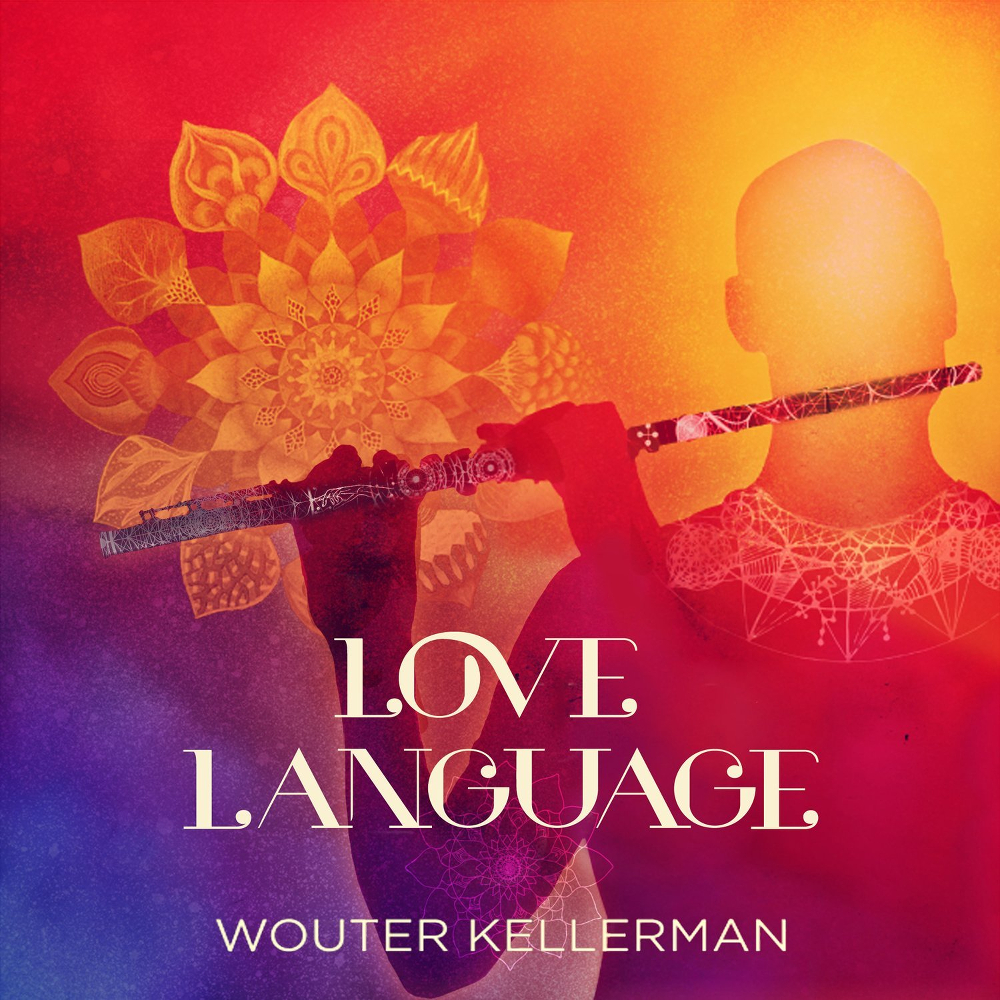Wouter Kellerman's Love Language is nominated in the contemporary Instrumental category.
Life was never going to be the same for South African flautist and composer Wouter Kellerman after he bagged a Grammy award for Best New Age Album in 2015 for Winds of Samsara, his collaborative album with Indian composer and producer Ricky Kej.
The man who had initially trained to be an electrical engineer went on to outsell United States pop sensation Taylor Swift on the South African music charts and reached the number one spot on the Billboard new age album chart, a milestone for a South African musician.
Kellerman has also graced the stages of Carnegie Hall, the Kennedy Centre in Washington, DC and the South by Southwest music festival in Texas. Those are just some of the doors that a single Grammy award opened for him.
Before that, although he had played at the closing ceremony of the 2010 Fifa World Cup, his critics had laughed at his plans of becoming a full-time musician in his forties and called him crazy.
Today, aged 54, the flautist is having the last laugh. He recently bagged another Grammy nomination for his sixth release, Love Language, in the contemporary instrumental category. Other nominees in the category are Bill Frisell, Marcus Miller, Kirk Whalum, Snarky Puppy and Metropole Orkest.
He’ll know his fate at this year’s awards ceremony, which will be held on Monday February 15 in Los Angeles.
“I’m absolutely over the moon. It’s such a special feeling to be valued by your peers, and to be rated as one of the top five contemporary instrumental albums of the year,” he told the Mail & Guardian recently.
The world in a flute
Pinning him down for a face-to-face interview is not an easy task, as he is often only in South Africa for short periods due to his international touring schedule.
But being a globetrotter is what inspires his craft. Kellerman’s sound is like an echo of diverse cultures from different corners of the globe.
“My music is ‘small world’ music,” he says, sitting on the porch of his manager’s home in Randburg, Johannesburg.
“I started out playing classical music but when I started writing my own music, it became world music because I’m interested in so many types of music. Flamenco, tango, Celtic music … all those influences find their way into my music.”
 Wouter Kellerman. (Supplied)
Wouter Kellerman. (Supplied)
Grand ambition of an ‘unknown’
Kellerman started playing the flute at the age of 10 and was always torn between science and music, but leaned more towards science and took up electrical engineering as a career.
He did, however, keep one foot in the music industry, performing at events and accompanying singers such as adult contemporary artist Nianell as a sideline.
But the passion in him couldn’t be silenced by his nine-to-five job and he eventually opted to take the plunge into the great unknown.
“Everybody told me: ‘What do you want to do? You are already in your forties and now you want to start writing your own music; you play the flute and you think people are going to come listen to you?”
“Ambitious” is how he describes both himself and his body of work. He memorably hosted a four-day show at the University of Johannesburg to record a live DVD for his debut album Colour (2007), which was nominated for a South African Music Award (Sama) in 2008.
Looking back, he thinks it was a bold move for an “unknown” artist to try to fill an auditorium for three nights in a row. But he’d waited for a long time to live his dream, and so he went all out. The risk paid off: he won a Sama for best instrumental/jazz/popular classical DVD in 2010 and has won another four since, including three for Winds of Samsara.
That album saw Kellerman and Kej working with musicians from five continents. Sticking with the collaborative formula, his most recent offering, Love Language, was created from constant global music file interchanges with artists based overseas. As a result, Love Language sounds like the voices of the world coming together on one album.
It features the likes of Kej, The Soil, the Australian Urban Orchestra and fellow Grammy winners the Soweto Gospel Choir, who sing on the track Winter, an excerpt from Antonio Vivaldi’s The Four Seasons.
Falling in love with cultures and sounds
Kellerman recorded the first song on the album, Aishwarya – which advocates for the education of young girls – with musicians in Chicago, Nashville, Los Angeles and Bangalore. An unexpected addition is a cover of Sleeping at Last’s ballad Turning Page, which gained popularity through the Twilight saga soundtrack.
“Love Language started off as an acoustic, intimate project but ended up also as a very epic project, but it still has an intimate sound,” says Kellerman.
As a result, the listener travels from India to South Africa and then to Argentina, in a display of how different cultures express themselves through music.
“What I have been doing is falling in love with a culture or sound and then exploring it,” he explains. “I believe my music is not dark. I like positive energy in music and so I decided to express how the different cultures spread positive energy through music.”

Kellerman’s second Grammy nomination probably shouldn’t come as a surprise to him, considering that he had award-winning producers on board. Kellerman coproduced the flamenco track Guajira with another Grammy winner, Val Garay, who has worked with the likes of Kim Carnes, Dolly Parton, Kenny Rogers, Neil Diamond and Joan Armatrading.
Despite his critical success, South Africans seldom hear Kellerman’s music on heavy rotation on local commercial radio stations because it is often boxed into the “not-so-sexy” classical category – a limiting definition of which Kellerman is conscious. However, his latest world-music album arguably features some radio-friendly songs, such as Zininzi with The Soil.
Making flute music funky
“With world music you have a smaller market that you target, and being a flute player has its own challenges because people go: ‘Flute, oh no!’
“A lot of people think a flute is just classical, but they don’t realise the beautiful and funky things it can do. I do beatboxing on the flute and call it fluteboxing.”
His achievement on the Billboard charts, however, challenges the belief that world music stands no chance against pop music. Further, he credits word of mouth as a tool that sells albums.
“In order to get a Grammy nomination, you need to make great music and make sure that people know about you. If they don’t know about you, then they won’t know that your music is out there – and that is what happened with my first two albums, which I had entered for the Grammys,” he says.
The attention he’s been receiving has been a return on investment and validation that he is on the right track. Whether he wins another Grammy or not, Kellerman can rest assured that the world now knows who he is.